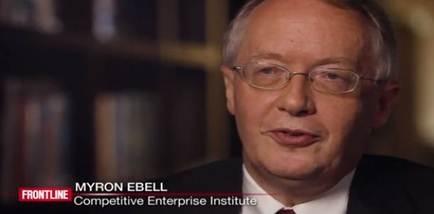The press routinely cites climate contrarian think tanks without reporting their ties to the fossil fuel industry.

The US news media routinely fail to inform the public about the fossil fuel industry funders behind climate change contrarian think tanks, according to an investigation by the Union of Concerned Scientists (UCS).
The investigation surveyed climate and energy stories published or aired in 2011 and 2012 by eight top news organizations to see if they reported funding sources for eight prominent policy groups that dispute climate science.
The climate contrarian groups included in this investigation are the American Enterprise Institute, Americans for Prosperity, Cato Institute, Competitive Enterprise Institute, Heartland Institute, Heritage Foundation, Institute for Energy Research (and its political arm, American Energy Alliance), and Manhattan Institute for Policy Research.
During the last decade, each of these policy groups was funded by at least one of the following benefactors: Exxon Mobil; General Motors; the American Petroleum Institute (the U.S. oil and gas industry’s trade association); and three family foundations controlled by Charles G. and David H. Koch, owners of Koch Industries, a conglomerate with oil, gas and coal holdings.
Two-thirds of stories from eight top news organizations failed to identify fossil fuel industry funding of climate contrarian think tanks
The investigation reviewed more than 1,000 stories, editorials, opinion columns and interviews published by the Associated Press, NPR, the political trade journal Politico, and six leading newspapers: the Los Angeles Times, New York Times, USA Today, Washington Post, and Wall Street Journal.
After narrowing the sample to 357 relevant pieces, the investigation found that these news outlets failed to provide information about the fossil fuel industry funding for these think tanks in two-thirds of the stories over the two-year period. (For more on the survey findings, see the tables below.)
Elliott Negin, UCS director of news and commentary, detailed the findings in a six-part series on Huffington Post:
- Part 1: A Glaring Lapse in Climate and Energy Coverage
- Part 2: Disinformation Laundering at the Competitive Enterprise Institute
- Part 3: Public Interest Groups Exxpose Exxon — Temporarily
- Part 4: The Koch Brothers Overtake ExxonMobil as Top Contrarian Patron
- Part 5: Science-Free Zones at the Heartland and Cato Institutes
- Part 6: It's Time for the Media to Stop Giving Climate Contrarians a Free Ride
- Read the Full Series




